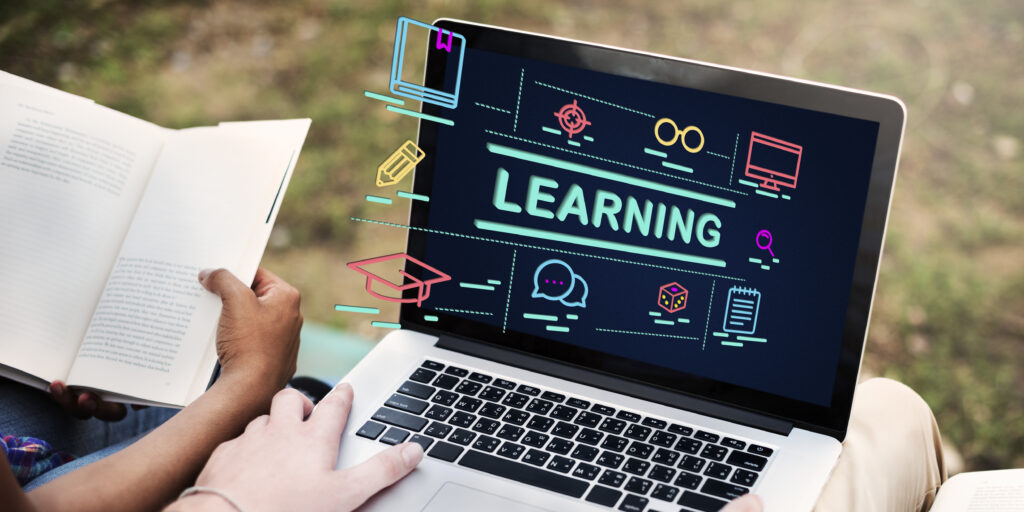Digital literacy has evolved as a crucial ability in the digital age, as technology has permeated every aspect of our life. It includes being able to utilize digital technologies efficiently, access and analyze information online, and confidently move around in the digital world. It requires a variety of technical abilities, information literacy, critical thinking, and a concept of digital citizenship; it goes beyond simply knowing how to use a computer or a smartphone.
The idea of digital literacy, its significance in contemporary society, and the difficulties we confront in reaching widespread digital literacy will all be covered in this blog. We may take steps to fill in the gaps in our digital literacy by being aware of them and working to ensure that everyone is able to fully participate in the digital world.
What is Digital Literacy?
The collection of abilities needed to use digital technology effectively is referred to as digital literacy. These abilities can range from fundamental ones like using a computer and navigating the internet to more complex ones like coding, data analysis, and digital creativity. Digital literacy also includes the capacity to assess the reliability of information obtained online and to use technology in a safe and ethical manner.
The significance of empowering digital literacy: Access to the large amount of data and resources that are available online is made possible by digital literacy. With this information, people can extend their knowledge, engage in lifelong learning, and make educated decisions.
Economic prospects: Many work prospects in the digital age need for digital abilities. Digital literacy improves employment and gives access to a wider range of career path.
Social Connectivity: Digital literacy makes it possible for people to connect with others all over the world, encouraging deep connections and enabling communication across borders and time zones.
Access to Services: To make daily living more convenient, digital literacy is necessary for gaining access to a range of services, including online banking, healthcare information, and government services.
The Digital Literacy Gaps
Despite the growing influence of technology in our lives, there are still wide gaps in digital literacy:
A generational gap Younger generations, sometimes known as “digital natives,” have grown up surrounded by technology, giving them a natural advantage over previous generations in terms of digital literacy. The generational divide may prevent older persons from utilizing digital tools and technologies to their full potential.
Socioeconomic Divide: Digital literacy is strongly influenced by socioeconomic level. People from low-income areas might not have as much access to technology and the internet, which would make it more difficult for them to acquire crucial digital skills.
Information Literacy Gap: Although there is an abundance of information in the digital age, not all of it is accurate or trustworthy. Fake news and disinformation spread because many people find it difficult to distinguish between reliable sources and false information.
Digital Skills for Employment: As the labor market changes, having strong digital skills is increasingly important for getting a job. But a sizable section of the workforce still lacks the essential digital skills.
Getting Close: Bit by bit
We must work together to close the gaps in digital literacy and build a society that is digitally inclusive:
Training and Education By incorporating digital literacy into academic courses from an early age, educators may provide children the skills they need to succeed in today’s rapidly evolving digital environment. Adults can also benefit from training programs that can help them develop the skills necessary for the digital age.
Public Projects: Governments and organizations should fund projects aimed at enhancing internet accessibility and infrastructure. This includes making technology accessible for cheap or without charge.
Collaboration with Tech groups: technology companies play a vital position in selling virtual literacy. Through creating consumer-friendly interfaces, supplying resources and tutorials, and helping digital training initiatives, they could help individuals end up extra comfortable with generation.
Selling important questioning: essential thinking and media literacy must be emphasised in academic settings to assist individuals navigate the big quantity of data available online. This can permit them to perceive dependable assets and avoid falling prey to misinformation.
Conclusion
Virtual literacy is an critical ability that empowers individuals, opens up monetary possibilities, and complements social connectivity. But, numerous divides nonetheless exist in our digital literacy, starting from generational and socioeconomic disparities to facts literacy and protection consciousness gaps. To address those challenges, we ought to prioritize education and education, put money into public tasks, collaborate with era corporations, and sell crucial thinking.
Via final the gaps in virtual literacy, we will create a digitally inclusive society where all of us has the capabilities and self assurance to participate completely in the virtual global. As generation maintains to conform, fostering virtual literacy becomes a collective responsibility, making sure that no person is left behind in the virtual technology. So, let us embrace the digital revolution with knowledge and recognition, paving the manner for a brighter and greater digitally literate destiny for all.

